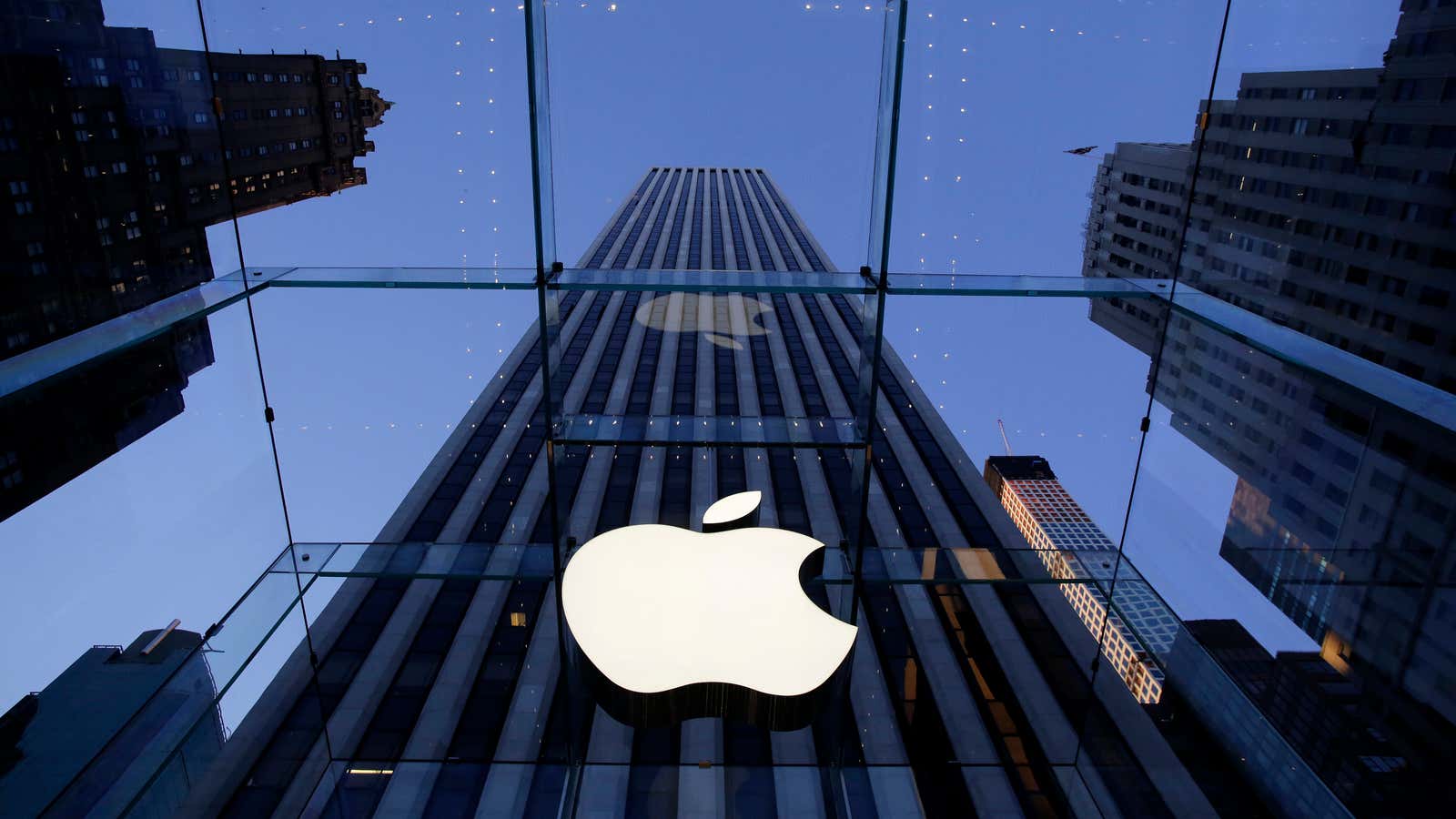Apple, which has by far more cash held overseas than any US company, announced Jan. 17 that it will spend around $30 billion on capital expenditures and create 20,000 new jobs in the US over the next five years.
The iPhone manufacturer currently has roughly $250 billion in cash generated from sales of products outside the US. It has not repatriated that money to its home country, as it would have been subjected to a 35% tax. But after the Republican Congress passed its tax overhaul plan late in 2017, companies will be subjected to a one-time tax on tax-deferred foreign earning whether they repatriate the cash or not, freeing them to do with it as they please after a massive tax savings. Apple said it will pay approximately $38 billion as a result of the tax change.
Seemingly as a way of saying thank you to Republicans and the Trump administration, Apple spelled out all the good things it already does for the US economy and what it plans to do now. In a press release today, it announced its capex outlook for the US and that it will build a new campus in the US, which will help create some of those new jobs. Apple said the new building will initially house technical support staff, and that it would name the location later in the year. It’s unclear if we’ll see the dog-and-pony show that municipalities have put on trying to entice Amazon’s second US headquarters.
Apple also added that about $10 billion of the planned US investments will go into data centers, and that it will break ground on a new center in Reno, Nevada, today. It’s also increasing its “Advanced Manufacturing Fund”—a billion-dollar pot of money it earmarked for working solely with US suppliers, and its original supplication to Trump’s tax plan—fivefold.
Combining these new investments with existing US supplier contracts, as well as the taxes it plans to pay on its US operations over the next five years and the tax on its lump of cash, the taxes its employees pay, and the sales tax on the goods it sells in the US, Apple said it will contribute more than $350 billion to the US economy. But that seems like fuzzy math at best.
Of course there was no word a new share buyback plan, which is what analysts expect companies to spend much of their newly freed cash on, as was the case during following the 2004 repatriation holiday.
Investors seem pleased with the news that they knew was coming as soon as the tax bill was passed, given that CEO Tim Cook has been harping on about Apple’s taxes for years. Apple’s stock price was up about 1.5% at the time of publishing.
